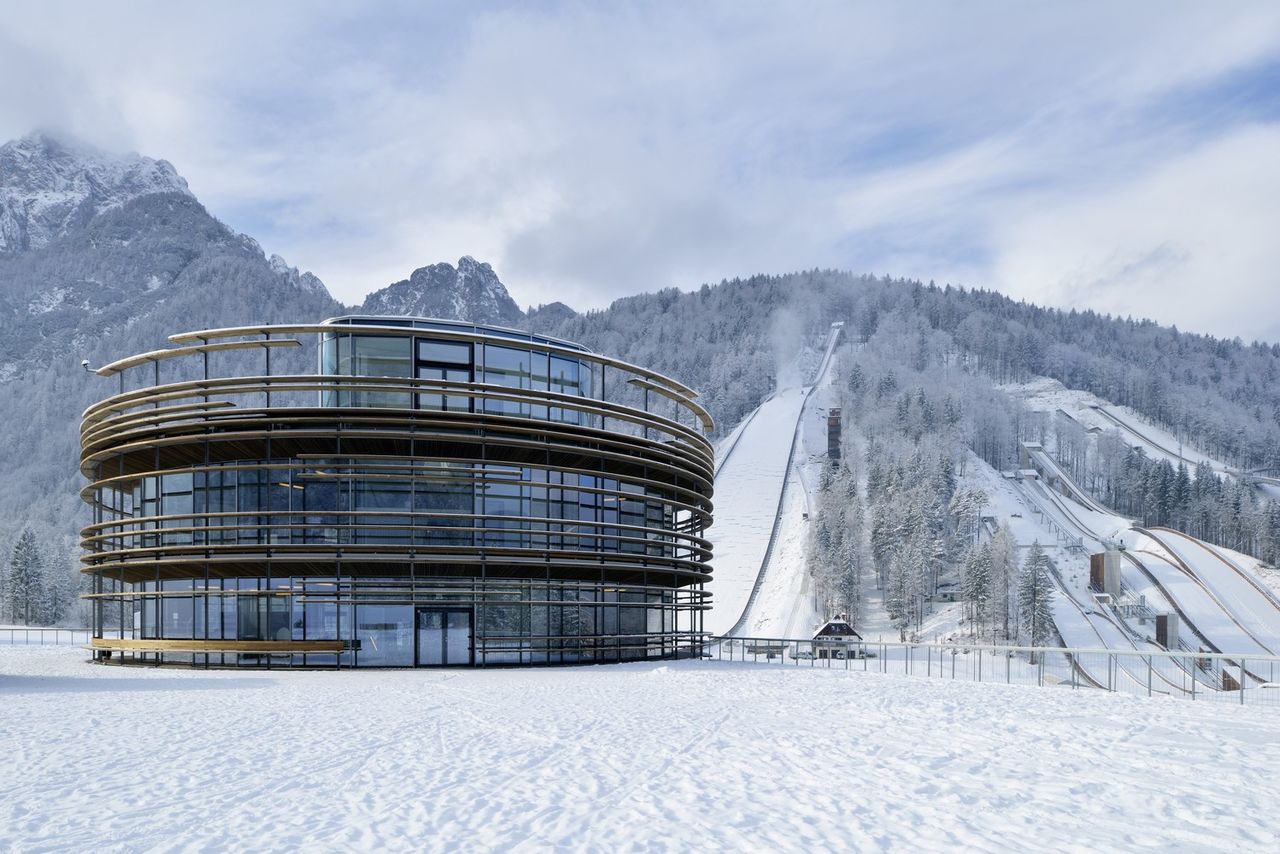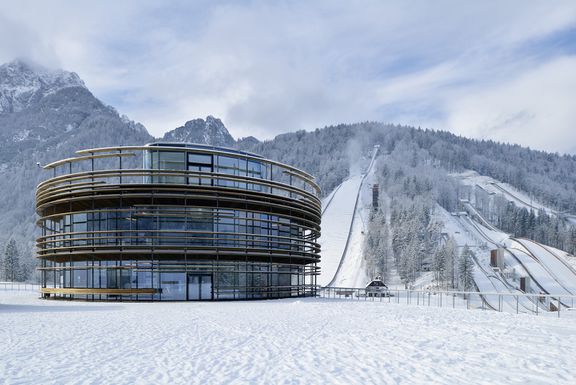Difference between revisions of "Planica Museum"
Anže Zorman (talk | contribs) |
Anže Zorman (talk | contribs) |
||
| Line 29: | Line 29: | ||
{{Teaser| | {{Teaser| | ||
| − | The [[Planica Museum]] is dedicated to the history of ski jumping and flying in Planica, an alpine valley in north-western Slovenia. | + | The [[Planica Museum]] is dedicated to the history of ski jumping and flying in Planica, an alpine valley in north-western Slovenia. The valley has been one of the prime sites for the development of ski flying on a national as well as a global scope, so consequently the museum also deals with the wider history of this sport. Set in a newly constructed pavilion as a part of a nordic skiing complex called the Planica Nordic Centre, it opened its doors in [[established::2016]]. |
The museum is bent on preserving, expanding and disseminating knowledge on the cultural, technical and material heritage of about a century of ski jumping in Slovenia. | The museum is bent on preserving, expanding and disseminating knowledge on the cultural, technical and material heritage of about a century of ski jumping in Slovenia. | ||
Revision as of 11:36, 1 March 2016
Background
The history of ski jumps in the Planica valley started back in the late 1920s, when first considerations to develop the valley into an international sports tourism centre have surfaced. This was followed by the construction of the first, 20 metre ski jumping hill, in 1930. A much bigger hill, called the Bloudek Giant [Bloudkova velikanka], was finished in 1934, when it also claimed its first world record. Soon after, the first ever jump over 100 metres was realised there, and along it also a new discipline called ski flying. Until 1950, all but one ski flying world record was achieved in Planica.
About three decades later, a new hill was constructed in 1969. This one maintained its dominance in ski flying for more than three decades, having been the site for about three quarters of all record lengths, among them also the first one over 200 metres. Altogether, 42 world records were made here, and all of this played a part in Planica becoming something of a cultural phenomena in Slovenia.
At the end of 2015, the Planica Nordic Centre was established as a modern nordic skiing complex that now boasts altogether eight renovated ski jumping and flying hills and which also caters to cross-country skiing and various summer activities. The three bureaus that handled the architectural dimensions of the project – from landscape design to the pavilion that houses the museum – are Studio Akka, A biro and Stvar. Their work was honoured for outstanding Slovene achievements in visual creativity by the TREND award 2015.
Museum exhibitions
A significant part of the exhibition came from the collection of the Slovene Sports Museum, which is at least formally a part of the Planica Institute of Sports. The museum is divided into three parts, each of them on its own floor. The ground floor, freely open for everyone, is composed of a few interactive video displays that present and illustrate both the local as well as global histories of ski jumping and cross-country skiing. This floor will also house a souvenir shop.
The upper two floors deal with the developments in Slovenian ski jumping and its prime protagonists, both the sportsman as well as the craftsman. Of the latter, the most important figures are Stanko Bloudek, Ivan Rožman and the brothers Vlado and Janez Gorišek. The first two are responsible for the "Bloudek Giant" (which was, curiously, actually constructed by Ivan Rožman and somewhat unfairly named after Bloudek), and the era of this ski jumping hill (1934 – 1969) is covered on the first floor. The construction of the Gorišek brothers hill marks the second era, covered on the second floor. Among many other things, the exhibitions presents various cups and medals, ski jumping equipment, explanatory texts, pictures, videos, an overview of ski jumping related philately and a collection of equipment from different eras that was used by Radio-Television Slovenia to transmit hte jumps via radio and television. There is also a sport suit used by Slovenian jumpers at the cult 1984 Sarajevo Olympics.
Of a more interactive nature is a simulator of ski jumps recoiling and landing, a simulator of ski jumping judging and – though not directly a part of the museum – a wind tube that enables the experience of floating.
See also
External link
- Planica Nordic Centre website (in Slovenian)
- Planica Institute of Sports website (in Slovenian)
- a presentation of the Planica Nordic Centre (in English)
- Planica Nordic Centre on Wikipedia




